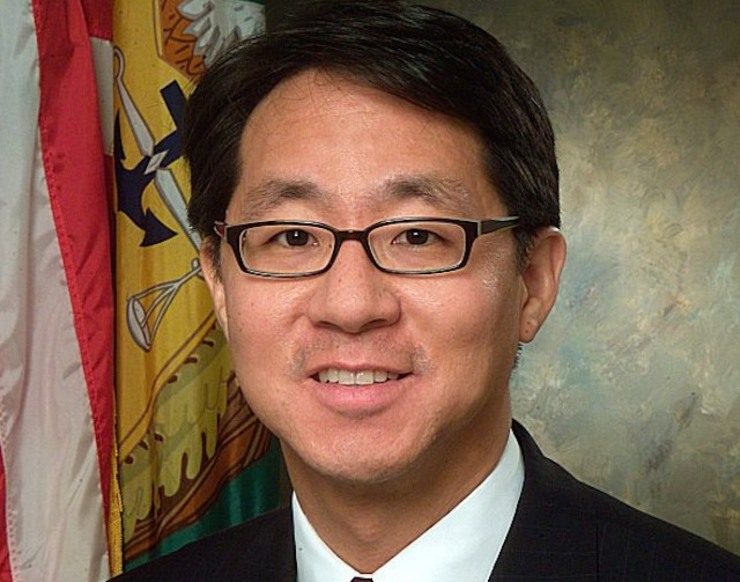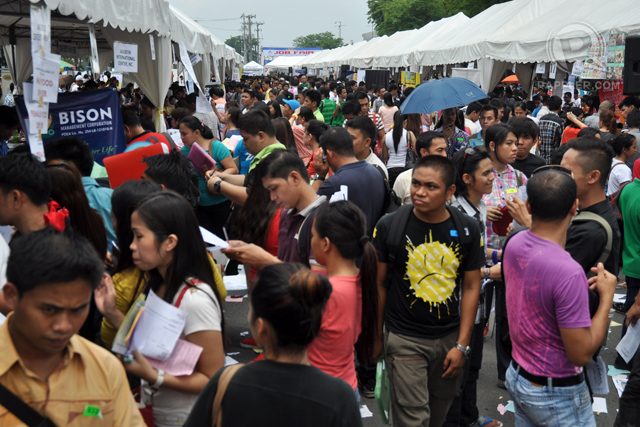SUMMARY
This is AI generated summarization, which may have errors. For context, always refer to the full article.

SINGAPORE – As I prepared for the first Asia Summit of the Milken Institute – a Los Angeles-headquartered nonpartisan economic and policy think tank focused on driving change through innovation – I was reminded of a question that has come to me repeatedly from young people in the Philippines and elsewhere across many of the 10 nations of the Association of Southeast Asian Nations, or ASEAN.
That is, as ASEAN moves toward an economic community, “Are we ready to compete?” For young people in the Philippines and elsewhere, my answer is simple. It is also intended to be encouraging. That is: quite frankly, yes you are. And, if not, yes you can.
During and after having stepped down from my post as US Ambassador to the Asian Development Bank (ADB), based in Manila, I have had the chance to speak to educators as well as new and soon-to-be new graduates, from The Lewis College in Sorsogon and Ateneo de Naga in the Philippines to Thammasat and Naresuan universities in Thailand.
The establishment of an ASEAN Economic Community (AEC) will certainly bring change, with its focus on creating a single market and production base. ASEAN matters more than ever, at least economically. Under the AEC, the Philippines and its fellow Southeast Asian nations will bring down barriers to greater regional economic cooperation. Understandably, people – including young graduates hungry for their first job – are worried about competition, rising wage rates and disappearing employment, and there will be new challenges, particularly to those who think the world will always be the same.
But there will also be opportunities.
I believe in Pinoy Power, but to build power, we must invest. We also must continue to fight corruption and improve the environment for small and medium-sized businesses. The Philippines should have greater confidence in itself, including in the ability of its own people to innovate and create opportunities at home, instead of simply seeking them abroad. I do.
Certainly, individuals can and must take steps to improve their English – the language of ASEAN – as well as business communication skills and cultural understanding of other nations. Here, the Philippines has an advantage, given the legacy of English left by the Americans, but it is an advantage that can be lost.
Much more needs to be done to improve the Philippine’s education system, but that is an ongoing, and long-term challenge and one that will not be simply solved by higher budget allocations. This is not simply about how much money is spent on education. More than money, change must entail the involvement of parents, new approaches to teaching, greater flexibility and the commitment of the larger community.
So what can each of us do? In the short-term, here are some tips to keep in mind.
First, understand, build and invest in your own brand. For individuals, communities or even a country seeking to compete, “brand” matters as much as it might for a company like Coca-Cola or Apple. But to understand your personal “brand identity,” you will need to find out what others think of you, and be open to hearing the good and the bad. That can mean sophisticated market research or doing something as simple as “Google yourself.”
Regardless of whether or not you like what you see, that baseline information is an opportunity to build on. This can mean improving skill sets or better emphasizing what are already terrific characteristics.

Second, remember the “little bric.” This is not the major capital letter “BRIC economies” of Brazil, Russia, India and China that once dazzled the world with ever growing amounts of inward investment but the small-letter, bigger challenge of bureaucracy, regulation, interventionism and corruption. In countries, large and small, including the United States, businesses and individuals are too often held back by these “little bric” constraints to innovation and economic growth.
The solution is straightforward: governments should improve the bureaucracy, regulate fairly, intervene rarely and end corruption. Easier said, of course, than done, but significant progress in places such as Hong Kong over the past decades show that it can be done.
My hope is that all Pinoys, but particularly young people in the Philippines and educators, will take steps to help “get the bric out” of not just government, but also all organizations in which we might be involved, whether student groups, retail outlets or family businesses. Think about how the bureaucracy, the rules and regulations, the interventions by government, and corruption and cronyism touch our daily lives. And then think about what we might change, and how to spark change.
Third, as each of us seeks to build a better life for ourselves, let’s not forget our larger community. Doing so will require finding that difficult balance, between self and others, between individual and community.
For businesses and the individuals that work at them, this means seeking ideally to both do well and to do good. Often this is described as “good citizenship” or “corporate social responsibility.” That can be tough when you are the new employee or when you are up against competitors that don’t follow your own pursuit of a strong “triple bottom line” of positive economic, social and environmental impact. I have confidence though that this can be done.
In my own time since leaving the Philippines and taking up a fellowship in Thailand and then Singapore, since stepping down from the ADB, I have sought to encourage others to move forward and to compete smarter, and to compete differently.
Here is one example from a Thai-based company called Equator Pure Nature, whose advisory board I recently joined. The company is launching a line of all-natural, certified hypoallergenic cleaning products under the Pipper Standard brand name. That company’s message? “A Healthy Environment Starts at Home.”
As the number of people with allergy symptoms has increased across Southeast Asia, this company’s products are intended to address that growing trend and an untapped market of people seeking to reduce the amount of chemicals in their homes. Focused on the “triple bottom line,” the company is taking up the challenge and the opportunity provided by the AEC, and other smart companies and entrepreneurs, including in the Philippines, will do the same. Echoing the Pipper Standard tagline, I note that a more competitive Philippines also starts at home.
Whether building your own brand, fighting the little bric or focusing on finding that right balance to growth, a focus on these three “Bs” may well help young Filipinos and business compete in a changing Southeast Asia, but also do so in a better, happier and more sustainable way. – Rappler.com
Curtis S. Chin, a former US Ambassador to the Asian Development Bank, is managing director of advisory firm RiverPeak Group, LLC. Follow him on Twitter at @CurtisSChin.
Add a comment
How does this make you feel?
There are no comments yet. Add your comment to start the conversation.